Interview Shindogs Air: Professional Pet Travel To And From Korea
6 minute read

Leo Mendoza's background is unique, to say the least. Born in Colombia to a Colombian father and an American mother, he spent his childhood living between the two countries, never fully embracing one culture over the other. After finishing his undergraduate studies, he enrolled in a postgraduate program that left him burnt out after two years. A friend who had moved to Korea introduced him to Busan University of Foreign Studies, where they needed a Spanish lecturer. Encouraged to apply, Leo decided to spend a year in Korea to reset his mind and save some money.
“At the end of that first year, I met someone special. I spoke to my advisor back in the States, and they agreed to let me postpone my studies for another year, while I was ‘seeing about a girl’. That year was 2000, and we’ve been together for nearly 24 years,” Leo shares.
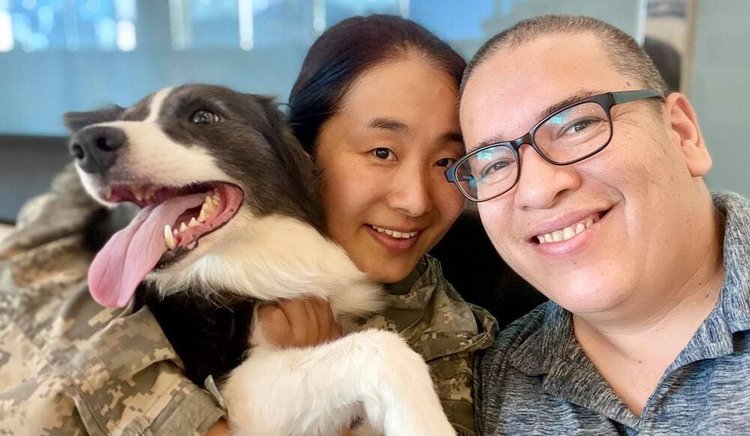
Motivation for Starting Shindogs Air
In 2005, Leo and his partner got involved in pet rescue, leading them to start their own dog shelter in 2008, Busan Abandoned Pet Sanctuary (BAPS). Through BAPS, they rescued thousands of dogs over a decade. Many of their volunteers were expats, which often required shipping dogs abroad. At that time, pet shipping agents charged outrageously high fees, causing many potential adoptions to fall through. Investigating further, Leo discovered that airline cargo fees were only about 50% of what was being charged, with the bulk going into net profit for the agents. They believed they could do better.
By 2015, Leo had reached the career ceiling for foreign professors at his university, with no possibility of promotion or significant raises. Realizing they could start a pet shipping company that charged fairer prices, they decided to pursue it. Both experienced educators, Leo and his partner Jin planned meticulously, undergoing professional development. In early 2016, Leo left his job to start Shindogs Air, and by that summer, Jin joined him full-time.
“Jin and I realized that with some planning and professional education, we could start a pet shipping company that didn’t overcharge like the existing companies, get more shelter dogs adopted abroad, and find a way to earn a decent livelihood doing something we loved, working with animals,” says Leo.
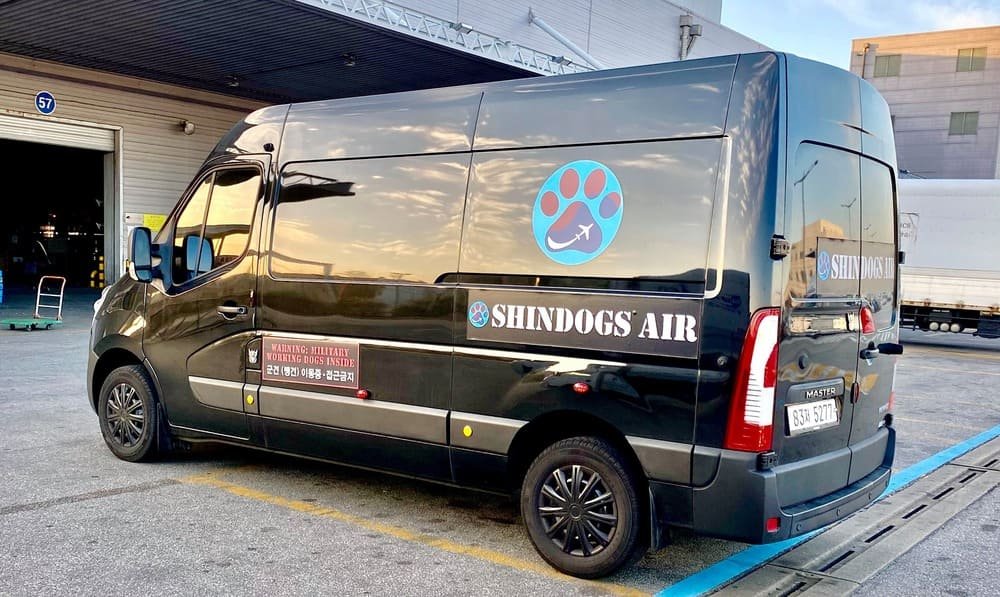
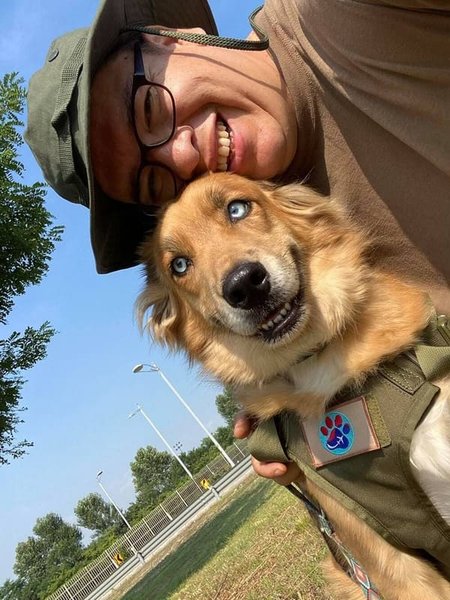
Business Overview and Unique Selling Points
Shindogs Air provides a complex service in simple ways. They are licensed to book and tender pets for unaccompanied cargo travel, acting as gatekeepers between airlines and pet owners. Jin handles the administrative side, managing the extensive paperwork, while Leo handles client communications and the pets. His unique skill in communicating with dogs provides comfort to clients, ensuring their pets have relaxed journeys.
“My other skill that permits us to succeed is my relationship with dogs. Over my lifetime, I’ve developed an understanding of communicating with dogs, and even though I can’t fully explain why, they trust me. Dogs just know. I have no fear of any dogs (except Chihuahuas), and this allows me to provide my clients great comfort, helping their pets to have more relaxed journeys,” Leo explains.
Pet Travel Safety
Safety in pet travel is crucial and often misunderstood. While air travel itself is very safe, the journey from the doorstep to the plane is the risky part. Proper animal handling, temperature-controlled vehicles, and safe management of travel crates are vital. This expertise sets Shindogs Air apart from other pet shipping companies.
“Knowing how to keep pets safe during transit is what sets apart pet shipping companies. Temperature-controlled vehicles, safe handling of pets at the airport, and proper management of the travel crates and packing are crucial to do correctly,” Leo emphasizes.
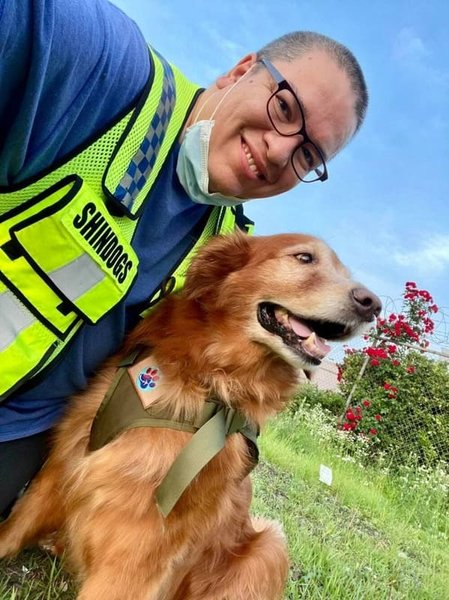
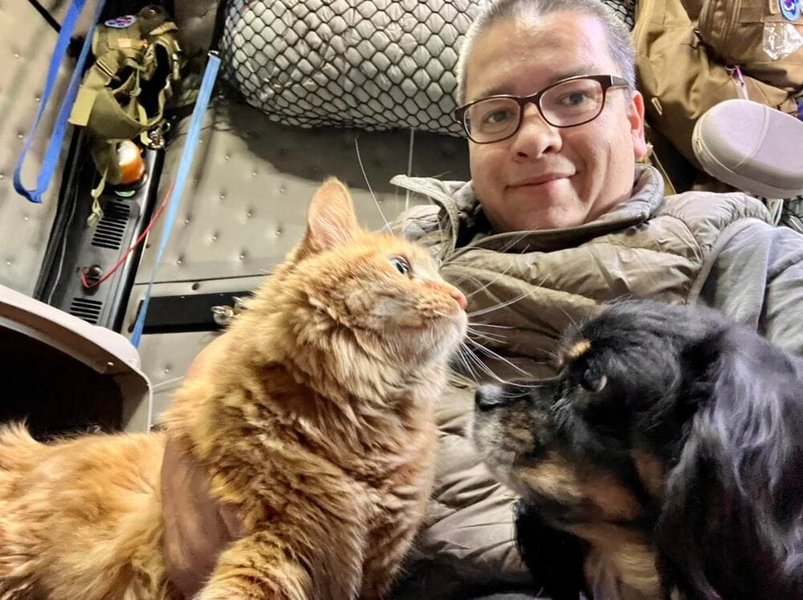
Pet Travel Challenges
One of the biggest challenges has been figuring out how to provide pet shipping services in Korea for expats. There is no handbook, so Leo and Jin had to navigate the complex process by themselves.
“There’s no precedent, training scenario, or relevant step-by-step guide. We’ve had to figure it out on our own, from dealing with the required contractors needed at the airport (of which there are many, many!) managing the aviation booking processes, and providing customer service to clients who don’t really have an understanding of the process to the international aviation regulations that have to be followed,” says Leo.
Customer Experience and Feedback
Distilling the complexity of pet travel into understandable methods for clients has been a significant challenge. Clients need to provide extensive documentation and information, which can be difficult to extract, especially when veterinarians are unfamiliar with the required procedures. Diplomacy with clients is crucial, and accessibility has been a cornerstone of their service. They run a Facebook group, providing professional answers and one-on-one messaging to clients, constantly adjusting their procedures based on feedback.
“We run a Facebook group specifically for pet travel information access. The group currently has over 10.000 members, and only a tiny fraction of that have ever become paying clients. We run it because when WE were customers of pet shippers, we were not able to get professional answers, and we know how frustrating it can be to not know,” Leo shares.
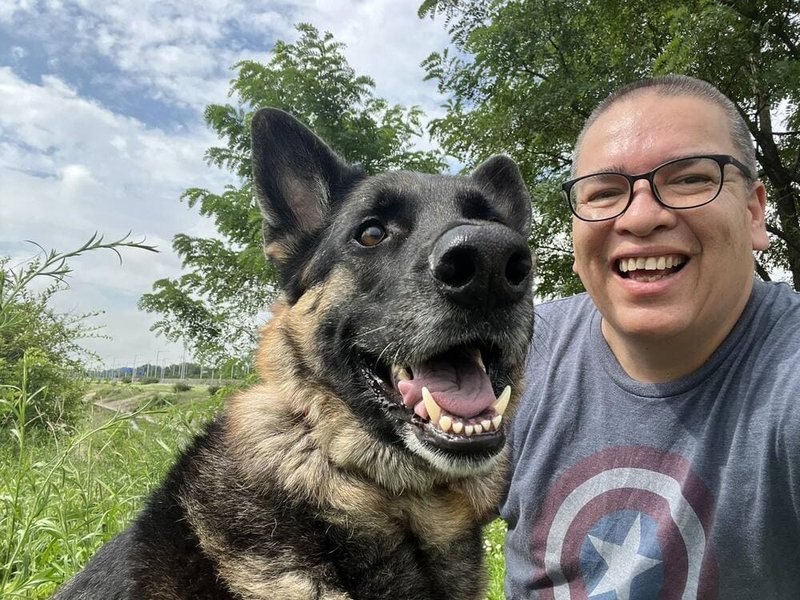
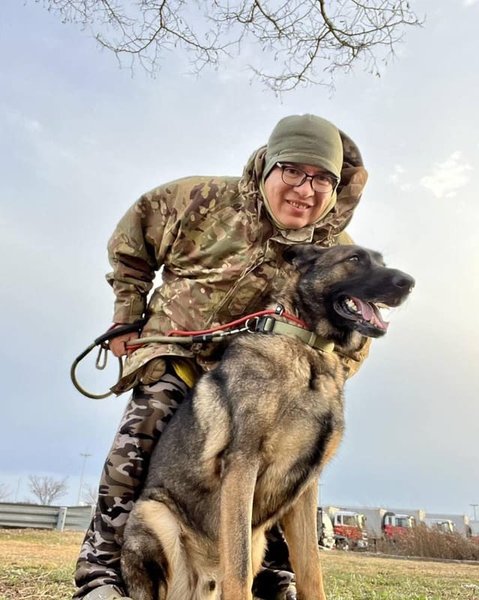
Future Plans and Expansion
Scaling the business is challenging due to the need for experienced animal handlers. Currently, Leo handles up to six client journeys per week, but finding additional handlers with the right qualifications and work visas is nearly impossible. While they are content with their current workload, the ever-evolving aviation industry requires constant learning and adaptation.
“We are content to keep providing service at our current workload. Our family income is sufficient for a comfortable life, and we aren’t ambitious to grow a huge company. We love our job as-is, and at the ages we are in, we don’t need to exponentially multiply our income.” Leo explains.
Starting a business as an expat in Korea
Starting and growing a business as an expat in Korea is tough, and maintaining success is even harder. Leo attributes many business failures to the lack of specialization, entering fields with strong competition, and failing to develop new clients in a transient market. His industry has the additional challenge of rarely having repeat customers, necessitating constant effort to attract new clients through excellent service and word-of-mouth.
“My industry has one tragic flaw: We NEVER get repeat customers past one and sometimes two transactions. Most clients use us one time, when departing Korea, and then NEVER use us again… a few clients that find us before coming to Korea may use us to bring their pet IN, and 1 or 2 years later ship their pet out, and then never again.
We need to constantly put ourselves in front of clients, service them, and then start over like a brand new company, hoping that we find new clients. That is a brutal burden to do business under, but it CAN be done, by providing excellent service, generating word of mouth, and putting yourself out there in the collective consciousness.,” Leo explains.
Reflecting on their journey, Leo emphasizes the partnership with Jin as fundamental to their success. They both love their jobs, finding fulfillment in handling animals and helping pet owners. For Leo, finding joy in work came later in life, inspired by Kevin Smith’s quote: “The secret to work happiness is finding what you love to do and finding a way to get paid for it.”
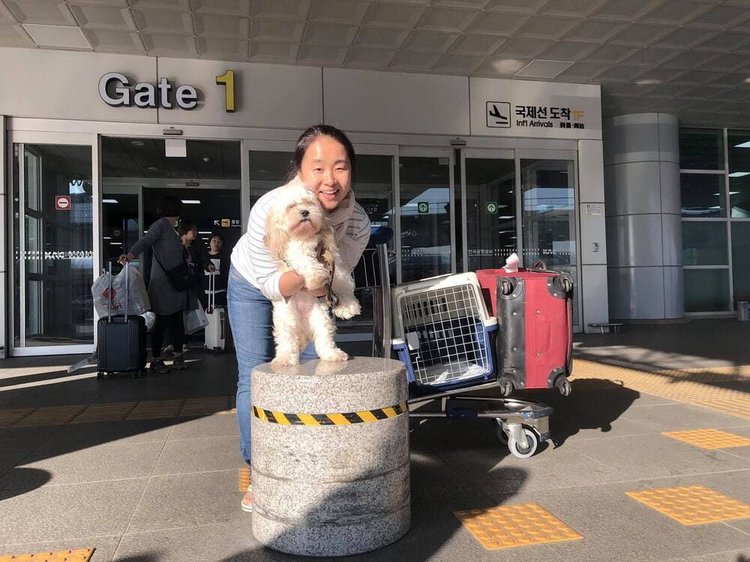
“Answering these questions has been a good opportunity to reflect on what we do. It has not been an easy journey, and it would be impossible without Jin doing all she does. We are truly a partnership, and our ability to run a home office together is the fundamental cornerstone of running a business together,” Leo reflects.
Shindogs Air Information
The easiest way to contact Shindogs Air is via their Facebook page and group. Leo actively monitors and responds to inquiries during business hours, maintaining a balance between work and personal life.
“Force yourself to keep a regular working schedule! Leave time for unplugging your brain from work. Unless it is a client emergency, I don’t respond outside of 9-6 on weekdays! Life balance is important to not burn out,” Leo advises.

Shindogs Air
Related posts

Reflect on the unexpected positives of the COVID-pandemic with these 8 reasons why the crisis may have had some silver linings.

A personal story highlighting the contrast between car seat use in Korea and the importance of road safety for children.



